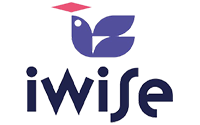The iWISE Olympiad Earth Science Category was created to provide aspiring geologists with the platform to delve deeper into research on Geography, Climate Changes, Geology, Atmospheric Science, Soil Science and Water Science etc. problems and use their scientific skills to find solutions.
Objectives for the Earth Science Category
– Encourage curiosity and systems thinking: Motivate students to investigate real-world problems in fields like Geology, Climate Science, and Atmospheric Science, emphasizing the interconnections within Earth’s systems.
– Develop analytical skills: Provide hands-on experience in collecting, analysing, and interpreting data, fostering skills essential for Earth science research.
– Promote experiential learning: Go beyond theoretical knowledge by encouraging practical investigations and fieldwork to see how scientific principles manifest in nature.
– Tackle real-world problems: Challenge students to use scientific skills to propose practical and innovative solutions for complex problems related to water resources, climate change, and geological hazards.
– Cultivate creative approaches: Encourage students to think outside the box when interpreting data, designing experiments, or proposing new solutions to long-standing environmental challenges.
– Demonstrate understanding and application: Assess not just recall of facts, but the student’s ability to apply their scientific knowledge creatively and effectively to address a specific issue.
– Improve scientific communication: Equip students with the ability to present complex earth science concepts clearly and effectively through written reports, visual displays, and oral presentations.
– Encourage international collaboration: Foster friendly relationships and teamwork among students from diverse backgrounds, promoting cooperative problem-solving on a global scale.
– Raise public awareness: Inspire students to act as science communicators, translating their findings to the public to raise awareness of Earth science issues and their societal relevance.
Young scientists can explore the Earth Science Category through various subcategories:
Atmospheric Sciences
Climate Sciences
Geography
Geology
Limnology
Oceanography
Soil Science
Water Science
- Click on the Registration Tab
- Select one of the Virtual Finals
- Fill in your details.
- Fill in your selected category details on the corresponding form.
- Select your available time for the Judging process.
- Submit your zoom judging session.
- Proceed to payment.
- Complete your submission.
Evaluation criteria for the Earth Science Category
Projects will be evaluated by a jury based on the following criteria, covering the entire research process from initial concept to final presentation.
Scientific research and thought
– Clarity of problem: Is the research question or hypothesis clearly and concisely stated?
– Thoroughness and methodology: Was the investigation well-planned and executed? Are the data and results complete and sufficient to support the conclusions?
– Understanding of concepts: Does the student demonstrate a deep understanding of the core Earth science principles relevant to the project?
– Scientific validity: Are the conclusions logically drawn from the data and analysis? Were the project’s limitations recognized?
– Systems thinking: Does the project consider the interconnections among different Earth systems (e.g., how the atmosphere impacts the hydrosphere)?
Creativity and originality
– Innovation: Does the project propose a new approach or solution to an Earth science problem?
– Ingenuity: Was new equipment designed, or was existing equipment used in an innovative way?
– Creative interpretation: Does the student demonstrate original thought in their interpretation and analysis of the data?
Communication and presentation
– Written materials: Are the report and supporting documents well-organized, clear, and professional? Are sources properly cited?
– Visual display: Is the visual presentation effective, clear, and easy to understand? Are charts and diagrams used effectively?
– Oral presentation: Can the student confidently and clearly discuss their project’s purpose, methods, and findings? Do they answer questions knowledgeably?
Overall impact
– Societal relevance: Does the project show an understanding of its potential impact on society, policy, or environmental issues?
– Independent work: Is the project primarily the student’s own work, with assistance acknowledged appropriately?
– Future research: Does the student have a clear vision for how their work could be expanded or what future research is needed?
Requirements for Virtual Finals:
Participants must out together the following documents for their STEM Projects:
Project Abstract
Project Portfolio
PowerPoint Presentation
No theme for this category.
Group submission is up to 3 participants
Requirements for Global Finals:
Participants must put together the following documents for their STEM Projects:
Project Abstract
Project Research Plan
Project Portfolio
Poster
Prototype (If Applicable)
PowerPoint Presentation (Optional)
No theme for this category
Group submission is up to 3 participants.
